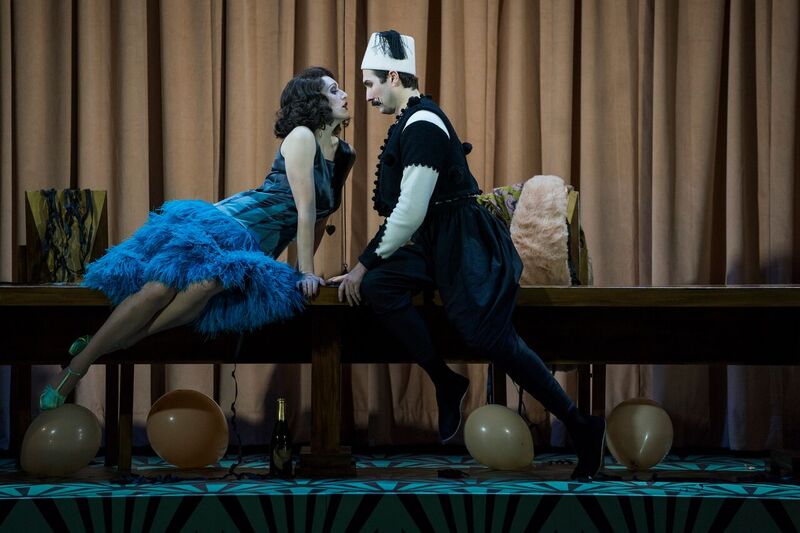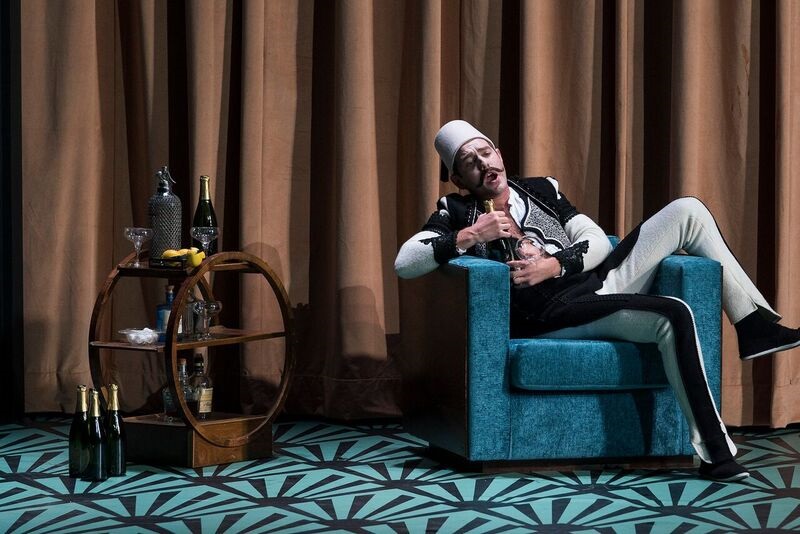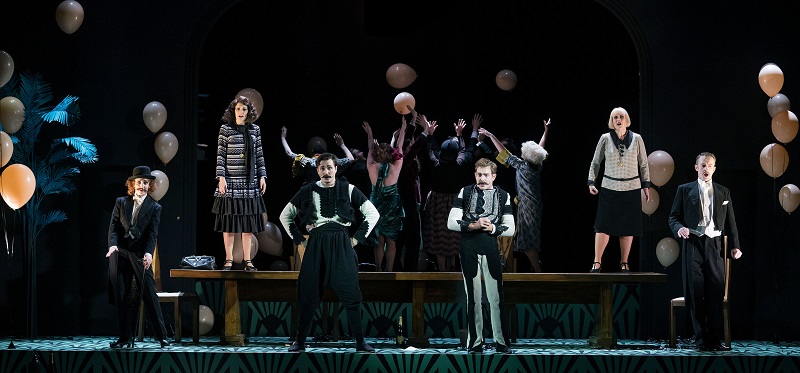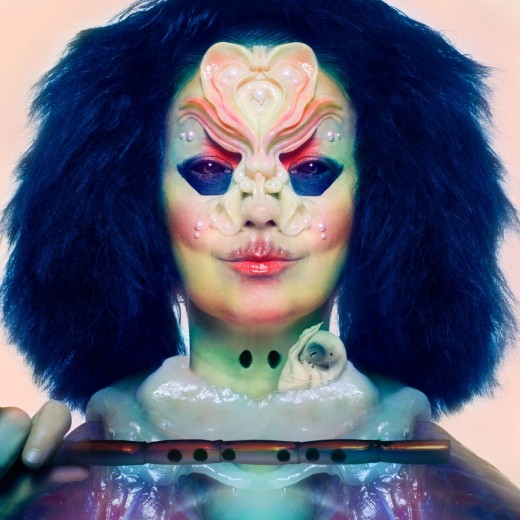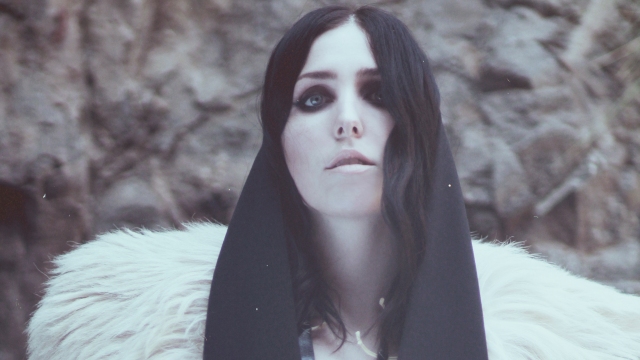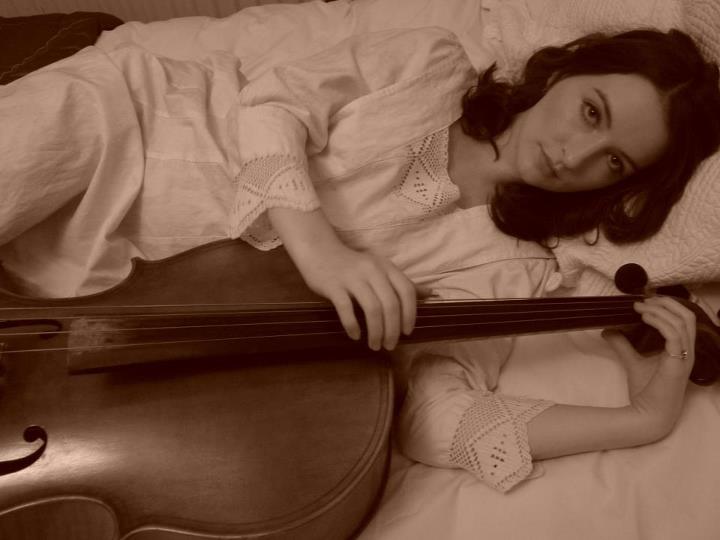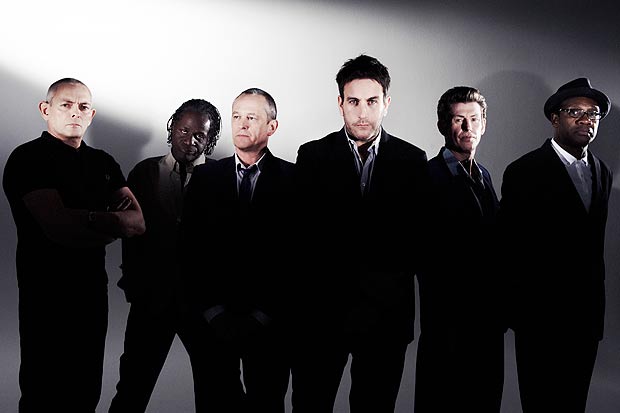Who is immune to a little flattery? Who, if anyone, cannot be seduced? Who, if we’re honest, is not tempted by forbidden fruits? As Wolfgang Amadeus Mozart’s Cosi Fan Tutte would have it, nobody – least of all women. All Women Do It translates the title of Mozart’s opera, written in the prolific period before he died.
Near-full houses for three nights in The Grand Opera House for this Northern Ireland Opera production was proof that Cosi Fan Tutte remains one of the most popular operas in the world. It wasn’t always so. In fact, it wasn’t until the twentieth century that this tale of foolish young pride, innocence, lust and infidelity won over the opera-going public.
Perhaps the opera’s time came with the collective relief at the end of The Great War of 1914-1918 and a renewed desire to live and let live. After such apocalyptic horror, who could get upset about women playing the field on the operatic stage?
Director Adele Thomas‘s setting of the action during an all-night party at the height of The Roaring Twenties perhaps supports this notion. It certainly makes for a dynamic and slightly saucy backdrop.
The chorus of revellers kicking up their heels to hot jazz while flirting and drinking with gusto evokes the gay abandon and excesses of the parties immortalized in F. Scott Fitzgerald’s novel The Great Gatsby (1925). In this sort of swinging environment, to paraphrase Cole Porter, anything goes.
Making her opera debut with Northern Ireland Opera, Thomas draws inspiration too from the spirit of the silent comedy era, imbuing the opera with a fluid comedic physicality and wit that elevates the rather thin plot, which in truth, librettist Lorenzo Da Ponte could have written on the back of an 18th century beer mat.
The older Don Alfonso (John Molloy), the story goes, proclaims that women cannot be trusted: “he who builds his hopes on a woman’s heart…hopes to snare the wild wind in a net”. He proposes a wager with young bucks Ferrando (Sam Furness) and Guglielmo (Samuel Dale Johnson) to test the fidelity of their respective fiancés, the sisters Dorabella (Heather Lowe) and Fiordiligi (Kiandra Howarth). They accept the wager.
As part of the deception Don Alfonso breaks the news to the women that their men have been called away to war. The men return, disguised as Albanians, and attempt to seduce each other’s heart-broken fiancés, which eventually they do. Thin on plot, but not on plotters. The men are egged on by Don Alfonso, while housemaid Despina (Aoife Miskelly) repeatedly does her level best to loosen the moral corsets of the two women, telling them that a girl of fifteen should know “where the devil keeps his tail.”
That the disguise of large hat, a jodhpur-like pair of trousers and an elaborate moustache – memorably described by Guglielmo in a strutting aria of seduction as a “love feather” – is sufficient to deceive the women requires no little suspension of belief. Then again, 18th-century opera buffa is nothing if not pure escapism – the musical of its day.
This production is not quite Wagnerian in length, weighing in at around two hours forty five minutes, though just occasionally a couple of the lengthier scenes perhaps outstay their welcome. There are also relatively few arias. Of the handful in Act One, two contrasting arias by Howarth and Furness stand out: the first, Fiordiligi’s impassioned defence of her fidelity, and the second, Ferrando’s most tender serenade, in the guise of the Albanian, both raise the hairs on the neck.
Familiarity with the music of Cosi Fan Tutte is an advantage, for in waiting for the individual showpieces it’s easy to overlook the sometimes dazzling duet, trio, quartet and quintet interplay between the five leads, particularly the breathless, phenomenally intricate ensemble finale to Act One.
The story follows its inevitable course in Act Two, with less suspense perhaps than an episode of Scooby Doo, though with a superior soundtrack. The chorus, which raises its collective voice on just a few dramatic occasions, contributes brilliantly to the comedic atmosphere with its silent though effervescent frivolity – something that can’t be said about too many opera choruses while waiting their cues to sing.
Act Two features fine arias from Howarth and Johnson, though in a production of uniformly excellent performances Miskelly as Despina arguably quietly steals the show, her character beautifully weighted between the cynical, slightly louche, and the wickedly comedic. When the Albanians feign suicide to draw the women’s sympathy and tender caresses, Despina arrives disguised as the doctor, her hat, cane and gait a playful nod to Charlie Chaplain.
Accusations of misogyny that have dogged Cosi Fan Tutte from the very beginning are largely dispelled through Thomas’ handling of character, whereby the four lovers are depicted as equally gullible and just as innocent as each other in the ways of love. All are portrayed as victims of the shenanigans unleashed by Don Alfonso’s wager.
Mozart’s rich, harmoniously complex and tremendously lyrical music – wonderfully played by singers and Ulster Orchestra alike – dominates the libretto, lifting the opera to a status that might have eluded it in the hands of a lesser composer. Still, it is the slightly unsettling lesson of Da Ponte’s story that lingers longest – that the heart strings may play different tunes depending on the hands doing the plucking. Ian Patterson

